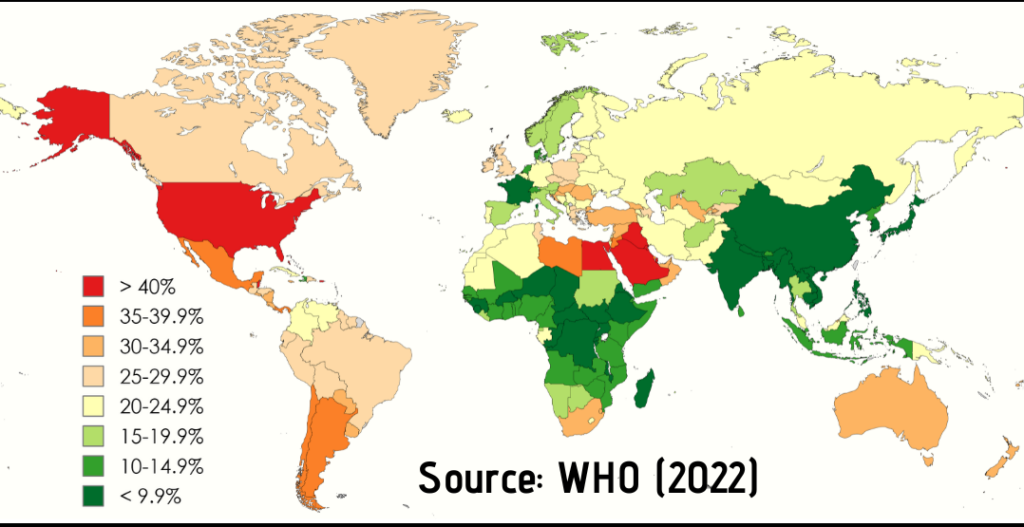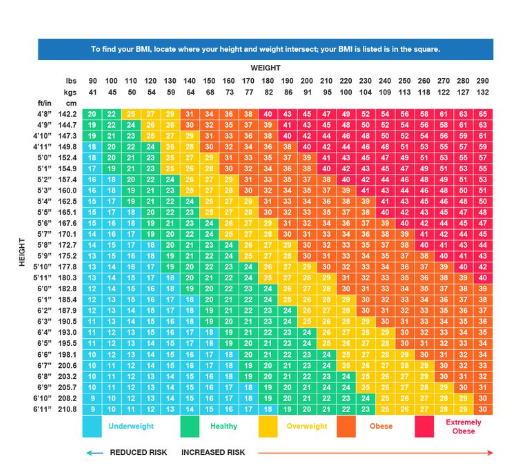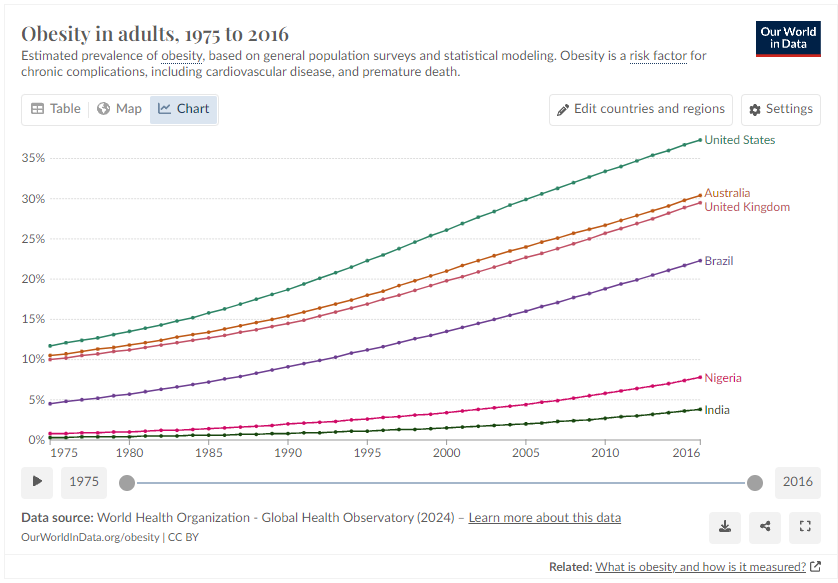Enhance your English speaking skills with these 7 advanced insights on the global obesity epidemic for 2024. Perfect for ESL learners looking to improve their conversation skills.
Welcome to our comprehensive guide on Advanced English Global Obesity Insights for 2024. This article aims to enhance your English speaking skills while providing crucial information about the worldwide obesity epidemic. As we explore seven key insights, you’ll gain valuable vocabulary and discussion points to confidently engage in conversations about this pressing global health issue.
Table of Contents
1. Introduction
2. Defining Obesity: More Than Just a Number
3. The Alarming Rise of Global Obesity Rates
4. The Hidden Culprits: Processed Foods and Empty Calories
5. Government’s Role in the Obesity Epidemic
6. The Economic Impact of Obesity
7. Obesity’s Effect on Healthcare Systems
8. Conclusion and Call to Action
Introduction
Welcome to our comprehensive guide on Advanced English Global Obesity Insights for 2024. This article aims to enhance your English speaking skills while providing crucial information about the worldwide obesity epidemic. As we explore seven key insights, you’ll gain valuable vocabulary and discussion points to confidently engage in conversations about this pressing global health issue.
The global obesity crisis has reached unprecedented levels, affecting countries across the world regardless of their economic status. According to the World Health Organization (WHO), obesity rates have more than doubled since 1980, with over 1.9 billion adults classified as overweight in 2014. This staggering statistic underscores the urgency of understanding and addressing this global health challenge.
In this article, we’ll examine the definition of obesity, its rapid increase worldwide, the role of processed foods, governmental responsibilities, economic impacts, and the strain on healthcare systems. By the end of this post, you’ll have gained not only crucial insights into the global obesity epidemic but also advanced English vocabulary to discuss this pressing issue confidently.

Defining Obesity: More Than Just a Number
To begin our exploration of global obesity insights, it’s crucial to understand how obesity is defined and measured. Dr. William Pang, a renowned heart surgeon and author of “Obesity: the Silent Killer,” provides a clear explanation:
“The World Health Organization (WHO) has a simple guideline for this. To be obese means someone who has a body mass index or BMI greater than or equal to 30, while being overweight is someone who has a BMI greater than or equal to 25. BMI is simply a person’s weight divided by the square of his height in meters.”
While BMI is a widely used measure, it’s important to note that it’s not perfect. However, it serves as a useful guide for assessing obesity levels in the general population. Understanding these concepts is vital for improving your English speaking skills, especially when discussing complex health topics.
Advanced Vocabulary:
- Body Mass Index (BMI)
- Overweight vs. Obese
- Anthropometric measurements

The Alarming Rise of Global Obesity Rates
One of the most striking global obesity insights is the rapid increase in obesity rates worldwide. As mentioned in the introduction, obesity has more than doubled since 1980. Let’s delve deeper into these statistics:
- In 2014, over 1.9 billion adults (18 years and older) were considered overweight.
- Of these, more than 600 million were categorized as obese.
- This means that 13% of the world’s adult population was considered obese in 2014.
This section not only highlights crucial global health trends but also provides an opportunity to enhance your English speaking abilities by discussing these pressing issues.
What’s particularly concerning is that this trend shows no signs of slowing down. The obesity epidemic is not limited to developed countries; it’s affecting nations across the globe, including:
- Western countries: United States, United Kingdom, and Australia
- Middle Eastern nations: Egypt, Bahrain, and Pakistan
- Remote island countries: Nauru, Cook Islands, and Tonga
This global spread underscores the need for a coordinated international response to address the obesity crisis.
Advanced Vocabulary:
- Epidemic
- Global health trends
- Demographic shifts

The Hidden Culprits: Processed Foods and Empty Calories
When examining global obesity insights, it’s crucial to understand the root causes of this epidemic. Dr. Pang highlights a significant factor contributing to the obesity crisis:
“We are finding that people are overeating and over-consuming chemically addictive, unnatural, processed foods, such as sodas, fast foods, chocolates, chips, and so on. Because these types of food have so little nutritional value in them, or as we call it: empty calorie foods, no matter how much you consume of them, you can never get enough of them.”
This insight reveals a vicious cycle:
- Consumption of processed, low-nutrient foods
- Lack of satiety due to poor nutritional value
- Increased hunger and cravings
- Further consumption of these foods
Moreover, the affordability of these “empty calorie” foods exacerbates the problem, particularly among lower-income populations. This economic factor contributes to higher obesity rates among the poorest segments of society.
Advanced Vocabulary:
- Processed foods
- Empty calories
- Nutritional density
- Food addiction
Government’s Role in the Obesity Epidemic
An often-overlooked aspect of the global obesity crisis is the role of governments in addressing (or failing to address) the issue. Dr. Pang emphasizes this point:
“Only the government has the real power to allow such foods to be sold or not sold in the free market. So in essence, if the government is allowing such harmful foods to be freely purchased and consumed knowing full well it’s causing obesity in the general population, then they are just as much to blame and as responsible as these multinational food companies.”
This insight raises several important questions:
- What responsibilities do governments have in regulating the food industry?
- How can policies be implemented to promote healthier eating habits?
- What is the balance between individual choice and public health concerns?
These questions form the basis of ongoing debates in many countries as they grapple with rising obesity rates.
Advanced Vocabulary:
- Public health policy
- Food industry regulation
- Consumer protection

Infographic on government policies addressing obesity – source www.instituteforgovernment.org.uk
The Economic Impact of Obesity
One of the most significant global obesity insights is the enormous economic burden it places on societies. Dr. Pang provides some startling statistics for the United States:
“Healthcare costs due to obesity are at a staggering $200 billion annually just in the United States alone. If obesity rates were to remain the same, then the cost of health care will balloon to over $550 billion in the next twenty years.”
This economic impact extends beyond just healthcare costs. Obesity affects:
- Productivity in the workplace
- Disability rates
- Public transportation and infrastructure needs
- Food production and agriculture
Understanding these economic ramifications is crucial for policymakers and business leaders as they navigate the challenges posed by the global obesity epidemic.
Advanced Vocabulary:
- Economic burden
- Healthcare expenditure
- Productivity loss
- Indirect costs
Obesity’s Effect on Healthcare Systems
The final key insight we’ll explore is the profound impact of obesity on healthcare systems worldwide. As obesity rates rise, so does the prevalence of related health conditions:
- Heart disease
- Type 2 diabetes
- High blood pressure
- Stroke
- Breathing problems
- Kidney failure
Dr. Pang paints a grim picture of the future if current trends continue:
“By 2020, three-quarters of Americans will be overweight. By 2050, one-third of all Americans will have diabetes.”
This increase in obesity-related health issues puts enormous strain on healthcare systems, affecting:
- Hospital capacity
- Medical staff workload
- Healthcare accessibility
- Medical research priorities
Moreover, the obesity epidemic is even affecting healthcare providers themselves, as Dr. Pang notes:
“What I’m finding is a lot of medical staff around the nation are also becoming overweight. These are the same people that are meant to save people’s lives and now aren’t even able to save themselves due to the type of foods that are easily accessible at hospitals.”
This alarming trend highlights the pervasive nature of the obesity crisis and the urgent need for comprehensive solutions.
Advanced Vocabulary:
- Comorbidities
- Healthcare Infrastructure
- Preventive medicine
- Public health interventions
Expert Interview with Dr. William Pang
Below is the full conversation transcript. Enjoy.
April: Good evening. Thank you for tuning into the April Jones show. I’m April Jones. On tonight’s show, we discuss the epidemic rise in obesity that is currently sweeping the entire world. From western countries like the United States, the United Kingdom, and Australia, to Middle Eastern nations like Egypt, Bahrain, and Pakistan, and even to remote island countries like Nauru, the Cook Islands, and Tonga, worldwide obesity rates have skyrocketed out of control. According to statistics compiled by the World Health Organization, worldwide obesity rates have more than doubled since 1980.
In 2014, more than 1.9 billion adults, 18 years and older were considered overweight. Of these, over 600 million were categorized as obese. Shockingly, that meant 13% of the world’s adult population was considered obese in 2014. The more alarming fact is that these trends seem to be continuing on an upward trajectory with no end in sight. Many health experts around the world are saying this is a ticking time bomb waiting to go off. We are joined today by world-renowned heart surgeon Dr. William Pang who currently serves as a chief heart surgeon at the world-famous Unity Medical Center located in San Francisco. Dr. Pang is considered one of the few vocal activists in the medical community that openly criticizes big food corporations and the lack of government policy to curb the obesity epidemic. He is also the author of the best-selling book “Obesity: the Silent Killer.” Thank you for coming in today, Dr. Pang.
Dr. Pang: Thank you for having me, April.
April: First of all, I’d like to ask you what does obesity mean? How do you classify someone as obese or not obese?
Dr. Pang: There’s a relatively simple way to determine obesity. The W.H.O., or World Health Organization, has a simple guideline for this. To be obese means someone who has a body mass index or BMI greater than or equal to 30 while being overweight is someone who has a BMI greater than or equal to 25. BMI is simply a person’s weight divided by the square of his height in meters. Now don’t get me wrong, BMI isn’t perfect, but it’s a pretty useful guide to measure the general population’s fatness level.
April: What do you think is the likely cause of this obesity epidemic?
Dr. Pang: Many would say it’s because most people are now overeating and under-exercising, which is correct. But the better question to ask is why we are overeating and under-exercising?
April: And why is that, Dr. Pang?
Dr. Pang: We are finding that people are overeating and over-consuming chemically addictive, unnatural, processed foods, such as sodas, fast foods, chocolates, chips, and so on. Because these types of food have so little nutritional value in them, or as we call it: empty calorie foods, no matter how much you consume of them, you can never get enough of them. You become hungrier faster, and then you want to consume even more of it. So there’s this vicious cycle that keeps operating. What makes it worse is that these empty foods a very cheap to purchase, so the poorest people are the most obese compared to the general population.
April: So what you’re saying is the food industry is the main culprit?
Dr. Pang: What I’m saying is that the fast food and confectionary food industry, especially the big multinational corporations, are to blame, but also the government.
April: Please, go on.
Dr. Pang: If you think about it, only the government has the real power to allow such foods to be sold or not sold in the free market. So in essence, if the government is allowing such harmful foods to be freely purchased and consumed knowing full well it’s causing obesity in the general population, then they are just as much to blame and as responsible as these multinational food companies.
April: But isn’t it the responsibility of the individual and parents to choose wisely?
Dr. Pang: Yes, it is, but if your environment is saturated with these types of food, even the most strong-willed person will eventually give in. What I’m finding is a lot of medical staff around the nation are also becoming overweight. These are the same people that are meant to save people’s lives and now aren’t even able to save themselves due to the type of foods that are easily accessible at hospitals. The government has to start understanding that their relationship with these multinational food companies is harming the long-term health of this country.
April: Why do you say that?
Dr. Pang: For instance. Let’s just take the United States as an example, which happens to be the number one obese and developed nation in the world.
April: Okay.
Dr. Pang: By 2020, three-quarters of Americans will be overweight. By 2050, one-third of all Americans will have diabetes. Not to mention the massive increase in heart disease, high blood pressure, stroke, breathing problems, hypertension, kidney failure, and other diseases that I’m seeing and hearing from hospitals around the world. In addition, healthcare costs due to obesity are at a staggering $200 billion annually just in the United States alone. If obesity rates were to remain the same, then the cost of health care will balloon to over $550 billion in the next twenty years. How will a sick population benefit America? The answer is it won’t. It will only put a massive burden on the government in future years, and the economy will be infinitely worse off.
April: So do you have any practical and effective solutions that will help solve this obesity epidemic?
Dr. Pang: I do. Some are very easy to implement and highly effective, but some of my other solutions could be considered a little controversial.
April: Controversial? We would definitely like to hear more of that, but before we do, let’s take a quick commercial break. When we come back, we’ll hear Dr. Pang explain some of his controversial solutions that could possibly help end this worldwide obesity epidemic.
Vocabulary for Advanced English Learners
Enhance your English skills with these advanced terms and phrases:
- Epidemic: A widespread occurrence of a condition or behavior
- Trajectory: The path followed by a projectile flying or an object moving under the action of given forces
- Culprit: A person or thing responsible for a fault or wrong
- Vicious cycle: A sequence of reciprocal cause and effect in which two or more elements intensify and aggravate each other
- Ticking time bomb: A situation that is likely to become suddenly dangerous or destructive
- Skyrocket: To rise or increase abruptly and spectacularly
Phrases
- Sweeping the entire world: something that is happening globally or affecting everyone around the world.
Example sentence: The COVID pandemic is sweeping the entire world. - Skyrocketed out of control: something has increased rapidly and gone beyond limits or expectations.
Example sentence: The price of bitcoin skyrocketed out of control last year.
- Categorized as obese: someone has a medical condition in which they are excessively overweight.
Example sentence: The doctor categorized him as obese due to his high body mass index. - Continuing on an upward trajectory with no end in sight: something is increasing or getting higher continuously, with no signs of stopping or slowing down.
Example sentence: The pollution levels in the city are continuing on an upward trajectory with no end in sight. - Ticking time bomb waiting to go off: something is about to become a big problem or disaster, and it could happen at any moment.
Example sentence: The political situation in the country is like a ticking time bomb waiting to go off.
- Little nutritional value: something doesn’t have many nutrients that are beneficial for the body.
Example sentence: Junk food has little nutritional value and is not good for our health. - Vicious cycle that keeps operating: something is continuously happening in a pattern that is difficult to break or escape from.
Example sentence: Poverty and unemployment can create a vicious cycle that keeps operating. - The economy will be infinitely worse off: the economy will be in a very bad situation or state that will have long-lasting negative effects.
Example sentence: If the trade war continues, the economy will be infinitely worse off.
- Easy to implement: something is simple or straightforward to put into action.
Example sentence: The new software update is easy to implement and doesn’t require any technical expertise.
Conclusion and Call to Action
As we conclude our exploration of these seven key global obesity insights, it’s clear that the obesity epidemic is a complex, multifaceted issue with far-reaching consequences. From its definition and measurement to its economic impact and strain on healthcare systems, obesity presents a significant global challenge that requires coordinated efforts from individuals, governments, and industries.
By understanding these insights, we’re better equipped to discuss this critical issue in English and contribute to the ongoing dialogue about potential solutions. As advanced English learners, you now have the vocabulary and knowledge to engage in meaningful conversations about global health trends and their impacts.
What are your thoughts on these global obesity insights? How do you think we can address this epidemic? We encourage you to continue this conversation with your peers, using the advanced vocabulary and concepts discussed in this article.
If you want to read ”Part 2″ where we’ll explore controversial yet potentially effective solutions to combat the global obesity crisis click here. You can also watch Part 2 on YouTube here.
Here is a recommended article for you 8 Powerful Advanced English Conversations for Real Life ESL.
Facebook
Twitter
LinkedIn


